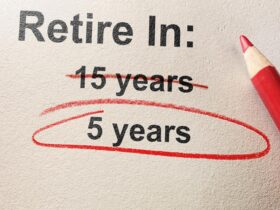Are you a homeowner in a state or territory of the United States? If so, there are certain benefits that apply when it comes to your taxes. One of them relates to a property tax exemption. but what is it?
In truth, there are quite a few different types of exemptions that you can benefit from, if you meet the right requirements.
If you would like to know more about homeowner’s property tax exemptions and how to apply, then keep on reading.
What is a Property Tax Exemption?
If you’re a homeowner, you may be able to take advantage of a property tax exemption to lower your tax bill. A property tax exemption is a deduction that can be applied to the value of your home, reducing the amount of taxes you owe.
There are a few different types of property tax exemptions, and each has its own set of requirements.
Who Is Exempt From Paying Property Taxes?
Homeowner’s property tax exemptions are available to eligible homeowners who occupy their homes as their primary residence. The exemption provides a credit against the taxes imposed on the property. To be eligible, homeowners must apply with their local assessor’s office.
The exemption is available for all taxes imposed on the property, including the homeowner’s share of any special assessments from the municipality.
Senior Property Tax Exemption
As a homeowner, you may be eligible for a property tax exemption. The type of exemption you receive is based on your status as a senior citizen, as well as the value of your home.
To qualify for a senior property tax exemption, you must be 62 years of age or older. Additionally, your home must be your primary residence and have a taxable value of $6,000 or less. If you meet these requirements, you may receive a $2,000 exemption on your property taxes.
If you do not qualify for a senior property tax exemption, you may still be eligible for a general exemption. To qualify, your home must have a taxable value of $12,000 or less. If you meet this criterion, you may receive a $1,000 exemption on your property taxes.
Even if you do not qualify for an exemption, you may still be eligible for a tax credit. The amount of the credit is based on your income and the value of your home.
Veteran Property Tax Exemption
This exemption can reduce your property taxes by up to $1,000. To qualify, you must have served at least 90 days of active duty during a wartime period, or at least 181 days of active duty during a peacetime period. You must also have been honorably discharged from the military.
This exemption is available to veterans who have served in the military for at least 90 days, and who meet other eligibility requirements. The exemption can be applied to the veteran’s primary residence and can provide a significant reduction in the amount of property taxes owed.
Disability Property Tax Exemption
A homeowner may be eligible for a complete exemption from property taxes if they are disabled. The home must be the disabled person’s principal place of residence and they must meet the income requirements. The exemption can be applied to the home’s value of up to $350,000.
The exemption can also be applied to the home’s value over $350,000, but only up to an additional $20,000.
Homestead Property Tax Exemption
A homestead property tax exemption is a benefit available to homeowners who live on their property. The exemption eliminates or reduces the amount of taxes owed on the home’s value. In order to qualify, homeowners must file for the exemption with their county’s appraiser’s office.
The exemption can be applied to a primary residence, a second home, or even vacation property that is used as a primary residence. There are income and asset limits in place for the exemption, so it is important to check with the county appraiser to see if you qualify.
Income-Based Exemptions
There are a number of programs that offer assistance to homeowners who are struggling to pay their property taxes. One of these programs is the Homeowners Property Tax Exemption, which offers an exemption from real estate taxes for those who meet certain income requirements.
To be eligible for this exemption, you must be a low- or moderate-income household, as determined by your state’s guidelines. If you are eligible, you will need to file an application with your local taxing authority. Once approved, you will be exempt from paying property taxes on your primary residence for a specified period of time.
Temporary Exemption for Disaster Damage
If your home was damaged by a disaster, you may qualify for a temporary exemption from your property taxes. To receive the exemption, you must submit an application to your local assessor’s office. The exemption typically lasts for the duration of the repairs.
Manufactured and Cooperative Housing
Manufactured housing is defined as a type of housing that is built off-site in a controlled environment and then transported to the property where it will be assembled. Cooperative housing is a type of housing where the residents own and manage the property together.
Both of these types of housing are eligible for the homeowners property tax exemption, and homeowners in these types of housing should be sure to take advantage of it.
Uninhabitable or Unstable Residence
If your home becomes uninhabitable or unstable due to unforeseen circumstances, you may be eligible for a temporary or permanent homeowners property tax exemption. This exemption can help ease the financial burden of rebuilding or relocating.
To qualify, your home must be deemed unlivable by a government official or qualified professional. Proof of damages may be required. If you are approved, your exemption will remain in effect until your home is repaired or rebuilt, or you permanently relocate.
Other Available Exemptions
Each state has different qualifications for each exemption, so it’s important to check with your local assessor’s office to see if you qualify. Additional tax exemption opportunities may also be applied considering the following:
- Renovation projects
- Energy incentives
- Surviving spouses
- First responders
The Difference Between Property Tax Exemption and Deduction
Property tax exemption and deduction are often confused because they both reduce your taxable income. A property tax deduction reduces the value of your property taxes by the percentage of your tax rate. For example, if you have a $100,000 home and your tax rate is 1.5%, your deduction would be $1,500.
An exemption, on the other hand, reduces the assessed value of your home, which in turn reduces your property taxes. For example, if your home is assessed at $100,000 and you have a $7,000 exemption, your property taxes would be based on an assessed value of $93,000.
Steps on How to Apply for Property Tax Exemption
To qualify for a property tax exemption, you must meet certain requirements and file an application with your county assessor’s office. Each county has different rules, so it’s important to check with your local office to see what’s required.
Generally, you must live in the home as your primary residence and use it for personal, non-commercial purposes. You may also be required to meet income requirements or have a disability. If you qualify, the exemption can save you hundreds of dollars each year.
Once you have completed the application, you will need to submit it along with any required documentation. The assessor’s office will then review your application and determine if you qualify for an exemption.
How to Claim Multiple Exemptions
Homeowners in some states may be able to claim multiple property tax exemptions. For example, in New York, homeowners may be able to claim an exemption for their primary residence, as well as an exemption for any other property they own that is used for agricultural purposes.
In order to claim multiple exemptions, homeowners must contact their local assessor’s office and provide documentation proving their eligibility.
Common Mistakes When Claiming a Homeowners Property Tax Exemption
There are a few common mistakes that can be made when claiming this exemption. One mistake is not understanding what qualifies as a permanent residence.
In most cases, a homeowner must live in the property for a certain number of days out of the year to qualify, and if the property is rented out or used as a vacation home, it may not qualify.
Another mistake is failing to meet the application deadline. In many states, the deadline to file for a homeowners property tax exemption is March 1, so it’s important to be aware of that date.
Finally, some homeowners mistakenly believe that they don’t need to reapply for the exemption every year. In most cases, an exemption needs to be claimed annually, and if a homeowner fails to do so, they may lose the exemption for future years.
Contact these property tax attorneys for more information about property tax exemptions.
Guide to Homeowner’s Property Tax Exemptions
While the specifics of homeowner’s property tax exemptions vary from state to state, they all serve the same purpose: to help homeowners save money on their property taxes. If you’re a homeowner, it’s worth looking into whether you qualify for a property tax exemption. You may be able to save hundreds of dollars each year!
We’ve got plenty of informative articles available for you throughout our site. Check them out!











